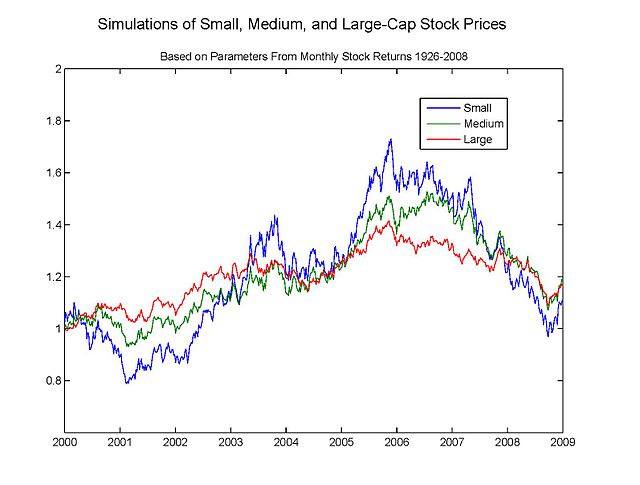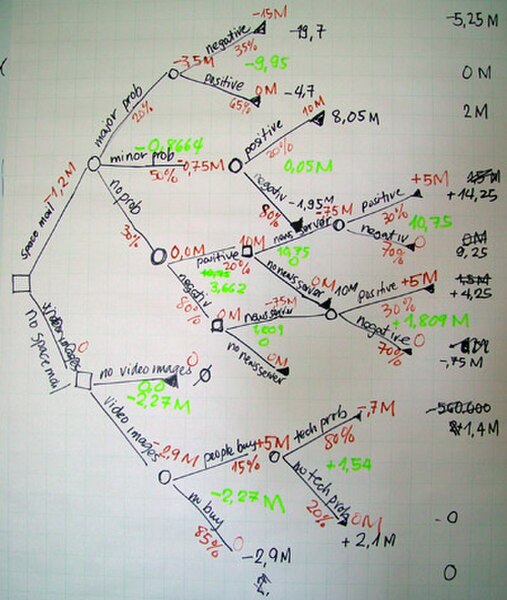Valuation using discounted cash flows
Valuation using discounted cash flows is a method of estimating the current value of a company based on projected future cash flows adjusted for the time value of money.
The cash flows are made up of those within the “explicit” forecast period, together with a continuing or terminal value that represents the cash flow stream after the forecast period.
In several contexts, DCF valuation is referred to as the "income approach".
Spreadsheet valuation, using free cash flows to estimate the stock's fair value, and displaying sensitivity to WACC and perpetuity growth (click on image to see at full size)
Financial economics is the branch of economics characterized by a "concentration on monetary activities", in which "money of one type or another is likely to appear on both sides of a trade".
Its concern is thus the interrelation of financial variables, such as share prices, interest rates and exchange rates, as opposed to those concerning the real economy.
It has two main areas of focus: asset pricing and corporate finance; the first being the perspective of providers of capital, i.e. investors, and the second of users of capital.
It thus provides the theoretical underpinning for much of finance.
Simulated geometric Brownian motions with parameters from market data
Project valuation via decision tree.



